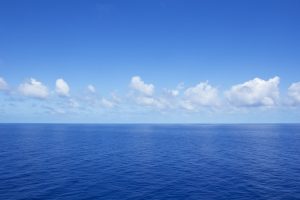Last week a delegation from the Pacific Island Forum (PIF) Secretariat met with Japanese officials to be briefed on Tokyo’s plan to release into the Pacific Ocean a million tonnes of contaminated wastewater from the Fukushima nuclear power station disaster in 2011. According to Japan’s Ministry of Foreign Affairs, the PIF delegation was informed that Japan has heavily treated the water to meet regulatory standards for safety, and prior to the discharge the water will be further diluted to reduce any trace elements of radioactivity.
The discharge of this contaminated water is of grave concern to Pacific Island countries. A central component of PIF’s 2050 Strategy for the Blue Pacific Continent is tying the future of the Pacific Islander peoples to the well-being of the Pacific Ocean. This framework seeks to submit all policymaking to an understanding of the Pacific Ocean’s geography, the unique identity of the Pacific and its people, and a consideration of the health and longevity of the ocean’s resources.
For Pacific Islanders, their relationship with the ocean is core to the region’s way of life. It has shaped the cultural and historical nature of these nations, and there is an inseparable link between the ocean and Pacific Islanders’ values, traditions, and spirituality. For Pacific Islanders, who feel a strong guardianship over the Pacific Ocean, Japan’s plan to release contaminated water into the ocean is of critical importance.
PIF’s position is that Japan should delay the release of the wastewater until its implications for the health of the Pacific Ocean and the effect it may have on the livelihoods of Pacific Islanders can be better understood. PIF believes that the release of this wastewater is not simply a domestic issue for Japan, but one with significant global and transnational implications. Tokyo must work with Pacific Islands, and other states bordering the Pacific Ocean, to develop a new global best practice in order to set a strong precedent in the case of another accident like the Fukushima disaster.
The history and ongoing consequences of nuclear weapons testing in the Pacific by the United States and France has made Pacific Islanders incredibly wary of any nuclear material. In response, the Treaty of Rarotonga was established in the mid-1980s to designate the South Pacific a nuclear weapons free zone. But this justified suspicion of nuclear weapons has extended to nuclear power generation as well. Accidents like the Fukushima disaster only compound this suspicion.
The desire to shift away from fossil fuels is creating a renewed interest in nuclear power generation. Concerns over carbon emission and future energy security are leading regional states like the Philippines and Indonesia to explore the option of developing nuclear power stations. Japan itself is planning to restart reactors that have been dormant since the Fukushima disaster, as well as construct new nuclear facilities.
This places Pacific Island countries in a bind. Reducing carbon emissions is a necessity to counter the existential threat from climate change these islands face, but the potential pollution from nuclear accidents may also threaten their livelihoods.
This is why Japan getting the disposal of the Fukushima wastewater right is so essential. If nuclear power is to become a greater source of energy within the Pacific rim, then strict procedures need to be put in place to accommodate any other accidents that may occur. Pacific Islanders do not want the dumping of nuclear wastewater into the ocean to become the norm.
A panel of experts assembled by PIF to advise them on their interactions with the Japanese have offered some potential solutions that include the use of wastewater to make concrete that could be used in projects that have only limited human contact, and the continued storage of the wastewater in more secure containers to allow radioactive trace elements to further decay. It would be in Japan’s interests to take these suggestions seriously, especially given its own fishing industry is also deeply concerned about the current release plan.
Japan is a good friend to the Pacific Islands and understands the importance of engaging transparently with the countries of the region on this issue. But it would be wise for Tokyo to fully appreciate the relationship that Pacific Islanders have with the ocean and the sense of guardianship they have over its health. As on the issue of climate change, Pacific Islanders are demonstrating genuine leadership on the issue of nuclear waste – leadership inspired by the brutal nuclear experiments the region was subjected to during the 20th century. There are no perfect solutions to this situation, but time and effort should be spent finding the best possible solution.

































